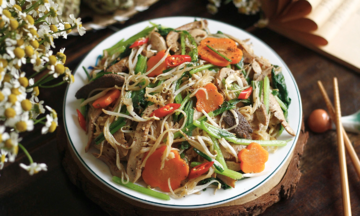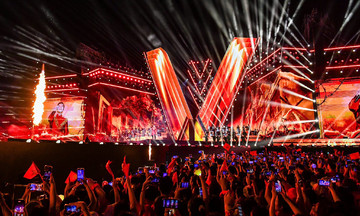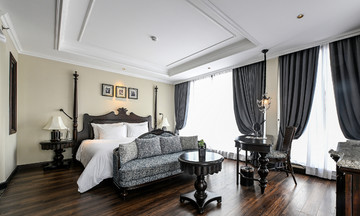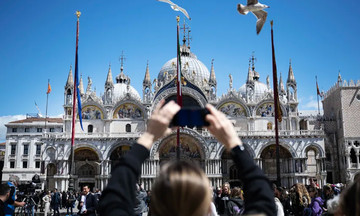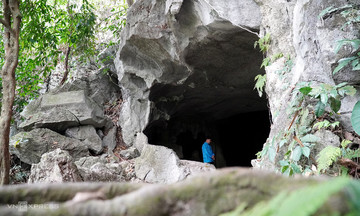In an age where information is readily available online and AI chatbots offer instant conversation, a growing number of young people in China are seeking guidance from ancient divination methods. Amy Hawkins, a writer for the Guardian, visited one of the many bars springing up in Chinese cities where patrons can enjoy drinks, snacks, and a glimpse into their future.
Hawkins' destination was Qie Le, a newly opened bar in Beijing's affluent Chaoyang district. On a quiet midweek evening, the dimly lit bar, adorned with Taoist talismans and sheer curtains, hosted fortune teller Wan Mo. Dressed in a white Tang dynasty-style tunic with traditional knotted buttons, the 36-year-old Mo specializes in qiuqian, a form of fortune-telling using numbered sticks that dates back to the Jin dynasty (266–420). Clients shake a wooden container until a stick falls out, and the fortune teller interprets the symbols on it.
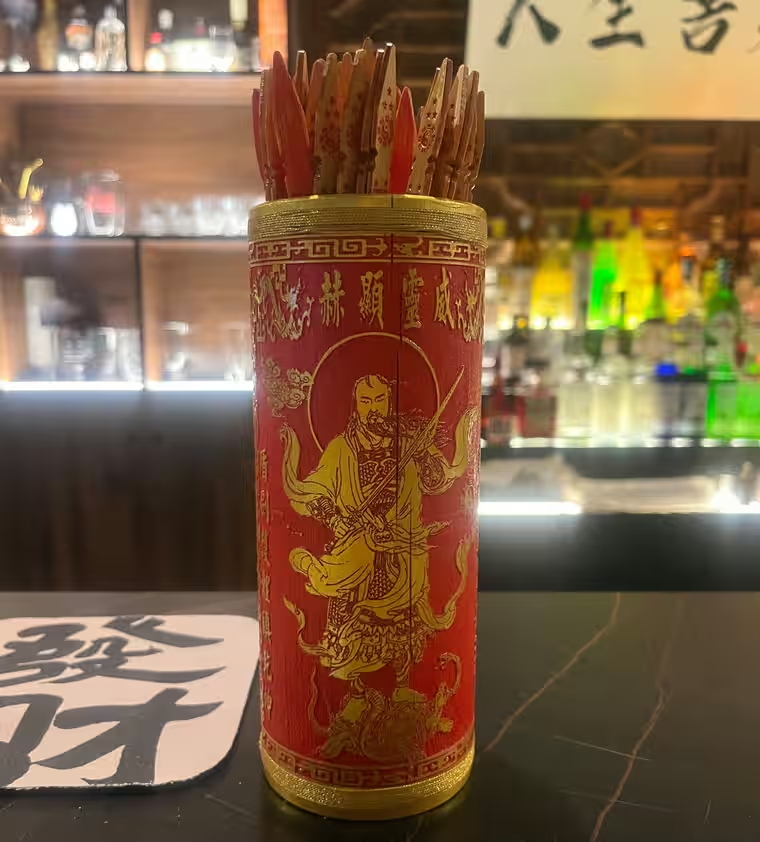 |
A customer gets her fortune told at a bar in Beijing. Amy Hawkins/The Guardian |
A customer gets her fortune told at a bar in Beijing. Amy Hawkins/The Guardian
Under the soft lighting, Hawkins decided to try her luck, seeking an answer to a pressing concern: "Will AI take my job?".
Mo instructed her to shake the container with both hands, focusing on her question. Two sticks tumbled out. After a moment of contemplation, Mo delivered the first prediction: AI would indeed impact Hawkins' job, despite her talent.
"You can write one article, but AI can write 10. There will definitely be an impact," Mo explained, adding that the second stick revealed a timeframe. The next one to three years wouldn't bring significant change, but beyond that, AI would become a dominant force.
Slightly unsettled by the prediction, Hawkins ordered another drink and posed a second question: "Will I get a raise?". Shaking the container again, a single stick emerged.
Mo examined the stick and declared the chances "not high". The stick signified a period of transition but no major changes. To improve her prospects, Mo advised Hawkins to focus on self-improvement, suggesting a wealth-attracting bracelet or other feng shui items for luck. Most importantly, she emphasized, "talk to your boss".
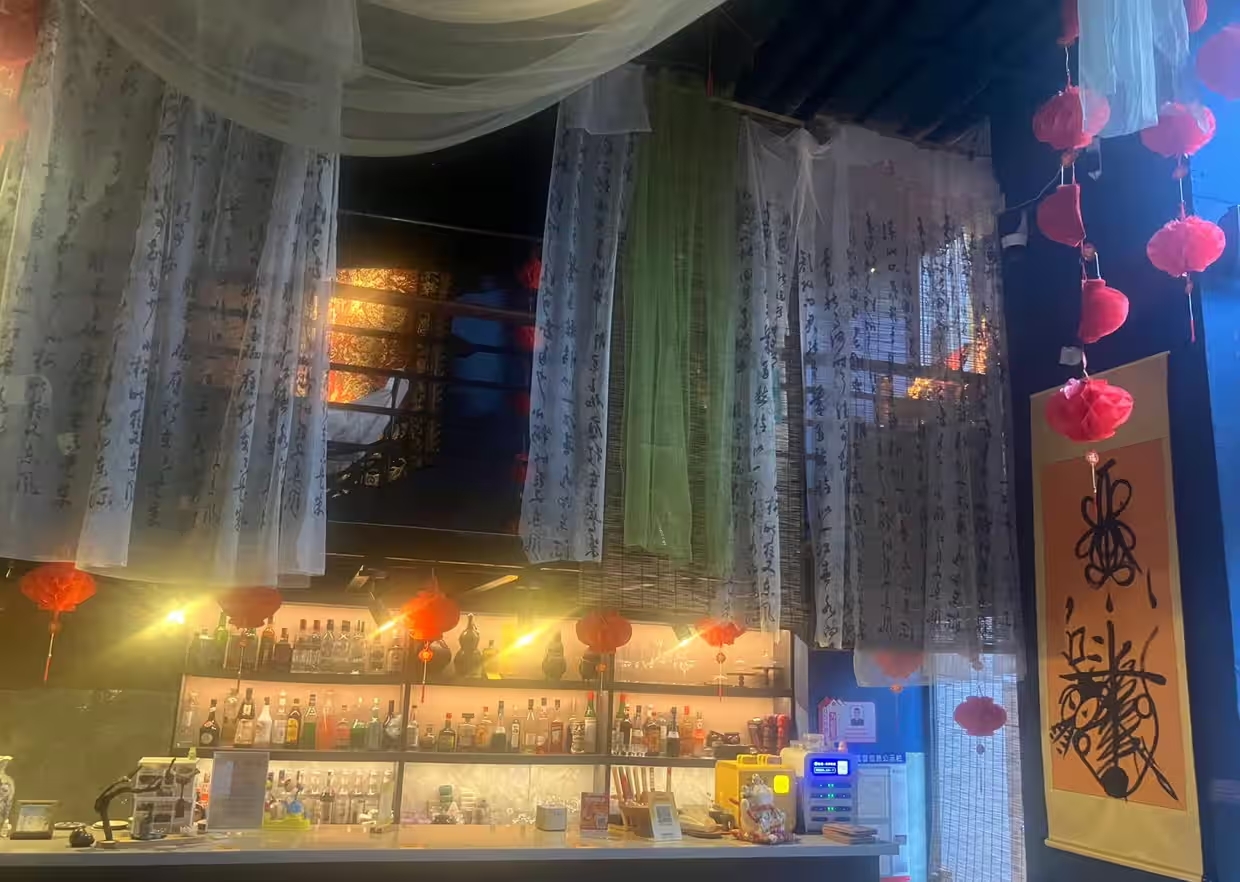 |
Fortune-telling sticks at the bar. Amy Hawkins/The Guardian
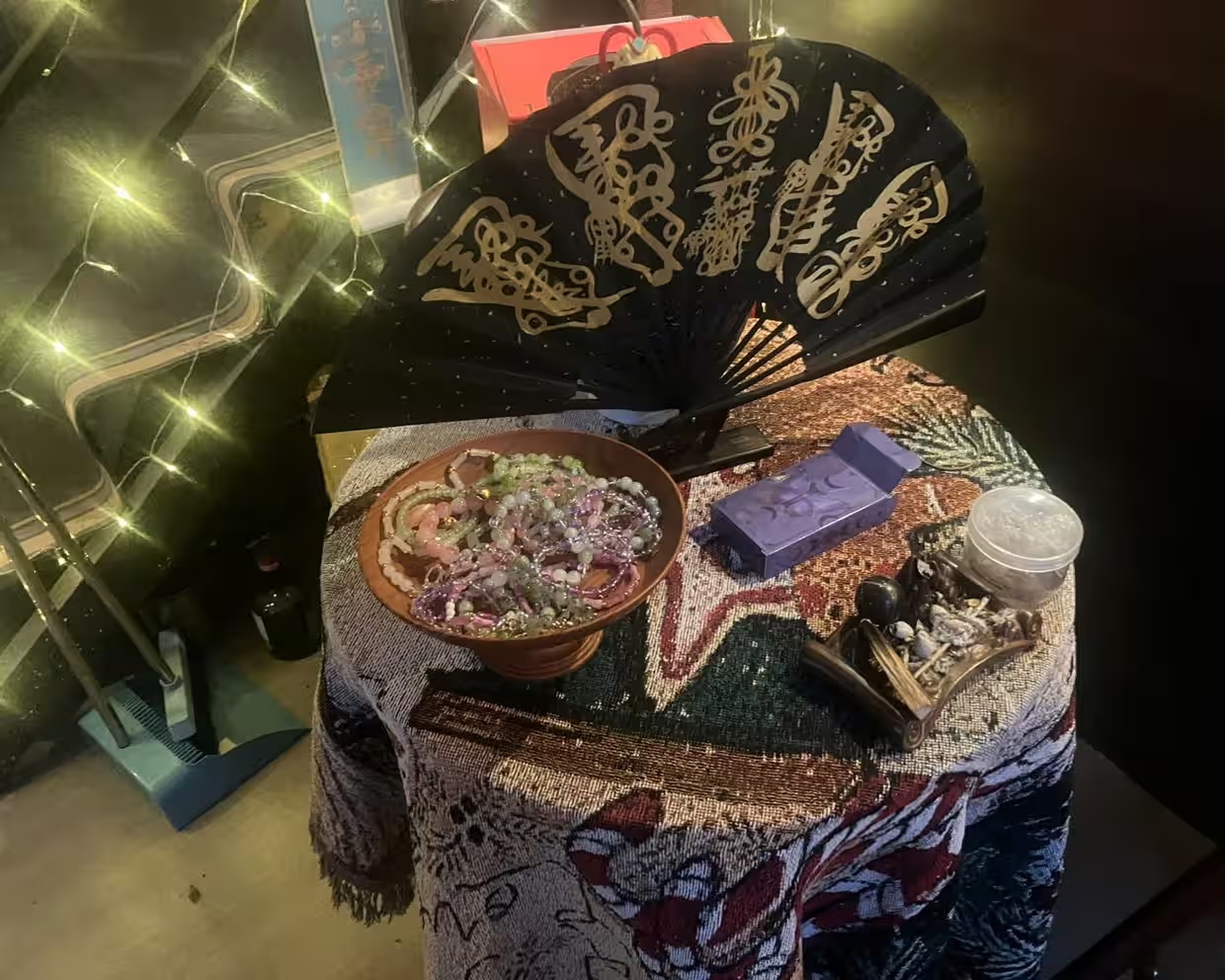 |
The Taoist-themed bar. Amy Hawkins/The Guardian
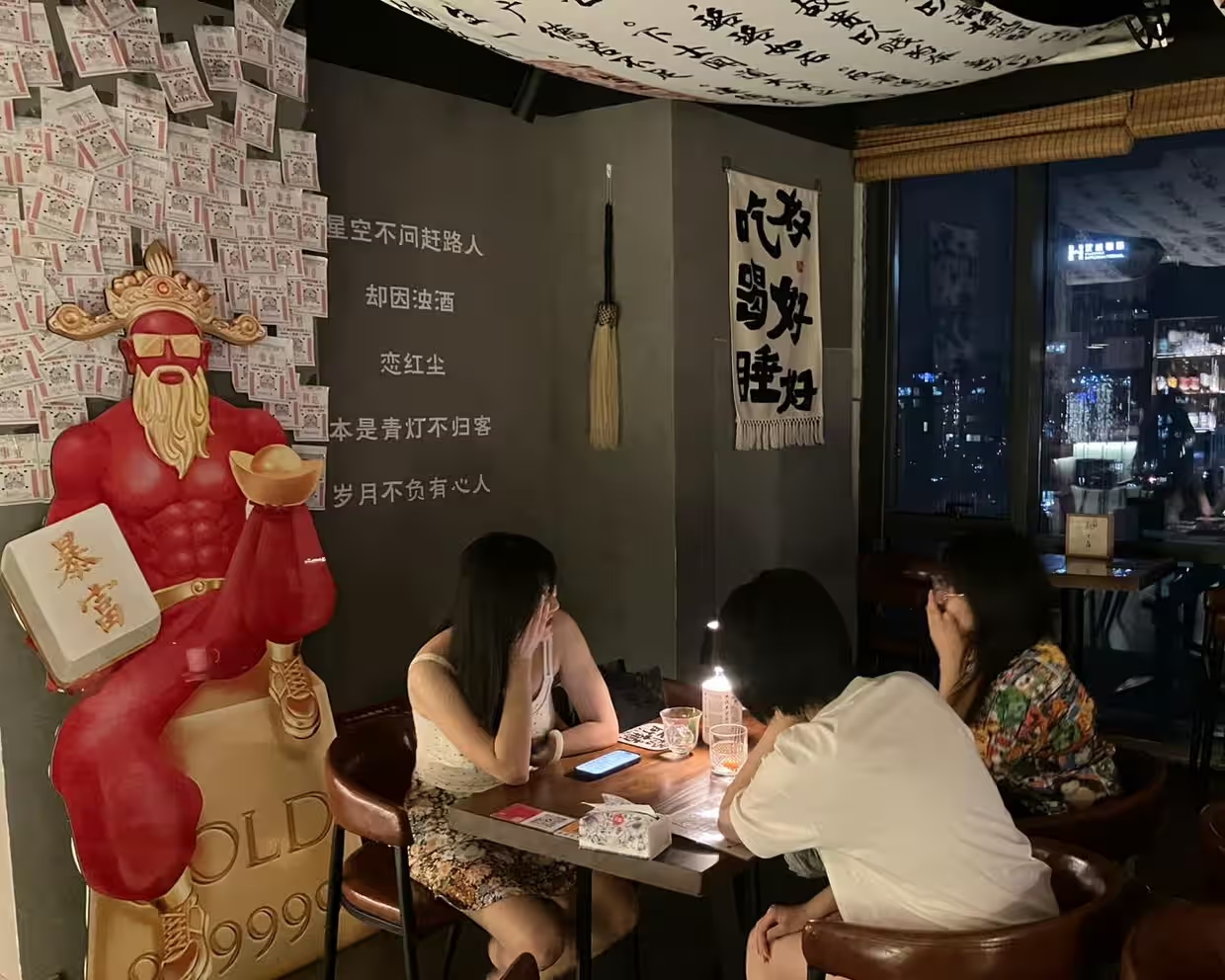 |
Feng shui items for sale at the bar. Amy Hawkins/The Guardian
Hawkins concluded her fortune-telling experience with two cocktails. Chatting with the bar staff, she learned that most patrons inquire about the same three things: wealth, health, and love.
These fortune-telling bars are popping up in major cities like Beijing and Shanghai, attracting a young clientele. They offer a blend of drinks, snacks, and traditional Chinese fortune-telling known as xuanxue.
This trend coincides with China's economic slowdown and increased frugality. Instead of retail therapy or expensive counseling sessions, many are opting for a more budget-friendly approach to stress relief: drinks and divination.
Mai Phuong (The Guardian)



